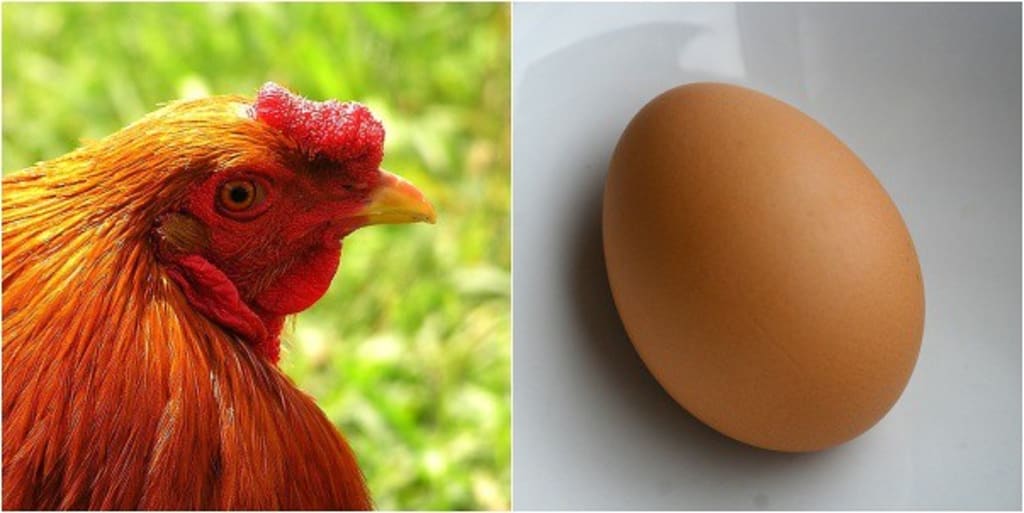Egg vs Chicken Debate: Nature's Marvels Unraveled
Discovering the chicken vs egg dilemma

Have you ever wondered which came first, the chicken or the egg? Join us on a journey through evolution and artificial selection as we uncover the mysteries of nature's choices. Let's settle the age-old debate - are eggs vegetarian or non-vegetarian?
1. The Age-Old Riddle: Chicken or Egg?
Hello, friends! Today, we dive into one of the most perplexing questions that have baffled humans for centuries - which came first, the chicken or the egg? It's a riddle as old as time itself, and we're here to uncover the fascinating secrets behind it.
2. The Dinosaurs' Egg-cellent Legacy
To answer this puzzling question, we need to travel back in time, about 150 million years ago when Earth was ruled by dinosaurs. It was a world filled with all kinds of dinosaurs - big and small, runners and flyers. This era also marked the dawn of birds, with some dinosaurs evolving into these feathered creatures.
3. The Chicken's Ancestry
Believe it or not, the common chicken we know today shares a common ancestor with the mighty T-Rex. Yes, you read that right! T-Rex's closest living relatives are modern-day chickens and ostriches, giving us that undeniable dinosaur vibe when we look at an ostrich up close.
4. The Egg vs. The Chicken
The key to unraveling the mystery lies in understanding the stages of evolution. Chickens evolved from wild red jungle fowl, which, in turn, evolved from an earlier species we can call "proto-chickens." The first true chicken was born from a genetic mutation within an egg laid by these proto-chickens.
5. The Role of Evolution
Evolution is not a straightforward process but a gradual, generation-by-generation journey. It's not as if one day, a chicken magically appeared. Rather, it's the result of thousands of years of genetic changes and adaptations.
6. Are Eggs Vegetarian or Non-Vegetarian?
Now, let's address a controversial question: Are eggs vegetarian or non-vegetarian? The answer isn't as simple as it might seem. Eggs come in two types - haploid and diploid. While diploid eggs can give birth to a new life, haploid eggs cannot. So, the answer depends on the type of egg you're talking about.
7. Parthenogenesis: Nature's Miracle
Some animals and plants can reproduce without fertilization through a process called parthenogenesis. While chickens cannot reproduce this way, other species, such as certain lizards and sharks, exhibit this fascinating phenomenon.
8. Artificial Selection: Humans Play Nature's Hand
Humans have played a significant role in shaping the characteristics of animals and plants through artificial selection. This process has led to the high egg-laying capacity of today's chickens, a result of selective breeding.
9. What's Natural, Anyway?
The distinction between what's natural and unnatural in the world of evolution and agriculture is blurred. Agriculture itself is a human-made endeavor that has transformed our planet over thousands of years.
10. Making Sense of Your Diet Choices
In the end, whether you choose to be a vegetarian, a vegan, or a non-vegetarian is a personal decision. It's essential to understand the complexities of nature and evolution to make informed choices about your diet.
Conclusion
The age-old chicken-or-egg debate is more than just a riddle; it's a journey through the fascinating world of evolution, artificial selection, and the blurred lines between natural and human-made. We've also tackled the question of whether eggs are vegetarian or non-vegetarian, shedding light on the intricacies of egg types and parthenogenesis.
FAQs
Q1: Are eggs vegetarian or non-vegetarian?
A1: It depends on the type of egg. Haploid eggs are vegetarian as they cannot produce a baby, while diploid eggs are non-vegetarian as they can lead to new life.
Q2: Can chickens reproduce through parthenogenesis?
A2: No, chickens cannot reproduce through parthenogenesis. They require fertilization to produce offspring.
Q3: How did humans shape the characteristics of chickens?
A3: Humans shaped chicken characteristics through artificial selection, selectively breeding chickens with desirable traits.
Q4: Is selective breeding natural?
A4: Selective breeding blurs the line between natural and human-made, as humans have influenced the evolution of many species through this process.
Q5: What's the best diet choice?
A5: The best diet choice depends on personal preferences and beliefs. Understanding the complexities of nature and evolution can help make informed dietary decisions.





Comments (1)
Great work!